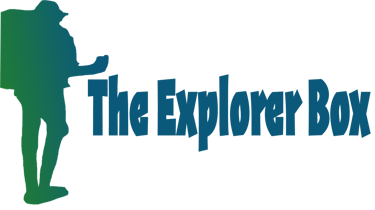Mastering Client Anticipation in Travel
Master anticipating client needs using top travel agent tools. Learn how this strategy increases client satisfaction, builds loyalty, and elevates travel planning for both agents and their clients.
4/6/20255 min read


In the competitive world of travel planning, the ability to foresee and address client needs before they arise is a hallmark of exceptional service. For travel agents, this proactive approach not only enhances client satisfaction but also solidifies long-term relationships and drives business growth. Central to this strategy is the effective utilization of travel agent tools, which empower agents to deliver personalized and seamless experiences.
Understanding Client Anticipation
Anticipating client needs involves a deep understanding of their preferences, behaviors, and expectations. It requires travel agents to go beyond reactive service, instead proactively offering solutions and suggestions that clients may not have considered. This approach transforms the travel planning process from a transactional interaction to a personalized journey.
Benefits of Anticipating Client Needs
Enhanced Client Satisfaction: Proactively addressing potential concerns or desires leads to smoother travel experiences, resulting in happier clients who feel understood and valued.
Increased Loyalty and Retention: Clients are more likely to return to an agent who consistently meets their needs, even before they voice them, fostering trust and long-term relationships.
Competitive Advantage: In a saturated market, the ability to anticipate and cater to client needs sets an agent apart, positioning them as attentive and client-focused.
Operational Efficiency: Foreseeing potential issues allows agents to address them proactively, reducing last-minute changes and streamlining the planning process.
Leveraging Travel Agent Tools for Client Anticipation
To effectively anticipate client needs, travel agents must harness the power of specialized tools designed to enhance client interactions and streamline operations.
1. Customer Relationship Management (CRM) Systems
A robust CRM system is indispensable for storing and analyzing client data, including contact information, travel history, preferences, and feedback. This centralized repository enables agents to tailor recommendations and anticipate future travel desires.
Benefits:
Personalized Service: Access to detailed client profiles allows for customized travel suggestions that align with individual preferences.
Efficient Communication: Streamlined tracking of past interactions ensures timely and relevant follow-ups.
Data-Driven Insights: Analysis of client data reveals trends and opportunities for proactive engagement.
Implementing a CRM system enhances the ability to anticipate client needs by providing a comprehensive view of their preferences and behaviors.
2. Booking and Payment Solutions
Integrated booking and payment platforms facilitate seamless transactions and provide clients with a hassle-free experience. These tools often include features like automated confirmations, reminders, and real-time availability updates.
Benefits:
Convenience: Clients appreciate a straightforward booking process with secure payment options.
Proactive Updates: Automated notifications keep clients informed about their bookings, reducing uncertainty.
Error Reduction: Integrated systems minimize the risk of double bookings or payment issues.
Utilizing such solutions ensures that clients' logistical needs are met efficiently, allowing agents to focus on personalizing the travel experience.
3. Itinerary Management Tools
These tools enable agents to create detailed, organized, and visually appealing itineraries that can be easily shared with clients. Features may include real-time updates, destination guides, and integration with clients' digital calendars.
Benefits:
Clarity: Clients receive comprehensive schedules, reducing confusion and enhancing their travel experience.
Flexibility: Real-time updates allow for adjustments to be communicated promptly.
Professionalism: Well-structured itineraries reflect the agent's attention to detail and commitment to quality service.
By providing clients with meticulously planned itineraries, agents demonstrate foresight and dedication to a seamless travel experience.
4. Marketing Automation Tools
These platforms assist in delivering personalized marketing content to clients based on their preferences and past behaviors. Automated emails, newsletters, and promotions keep clients engaged and informed about relevant travel opportunities.
Benefits:
Consistent Engagement: Regular, tailored communication keeps the agent-client relationship active.
Increased Bookings: Timely offers and reminders can prompt clients to book their next trip.
Time Savings: Automation reduces the manual effort required for marketing campaigns.
Effective use of marketing automation tools ensures that clients receive relevant information, reinforcing the agent's role as a proactive advisor.
5. Feedback and Survey Tools
Post-trip surveys and feedback forms provide valuable insights into client satisfaction and areas for improvement.Understanding clients' experiences allows agents to refine their services and anticipate future needs more accurately.
Benefits:
Continuous Improvement: Direct client feedback highlights strengths and areas for development.
Client Empowerment: Inviting feedback shows clients that their opinions are valued.
Predictive Insights: Analyzing feedback trends helps in forecasting client preferences and expectations.
Regularly soliciting and acting on client feedback demonstrates a commitment to excellence and proactive service.
Strategies for Anticipating Client Needs
Beyond leveraging travel agent tools, adopting specific strategies can further enhance an agent's ability to anticipate and fulfill client needs.
Active Listening: During consultations, pay close attention to clients' expressed desires and underlying motivations. This understanding enables the crafting of experiences that resonate deeply with them.
Market Research: Stay informed about emerging destinations, seasonal trends, visa policies, and global events. This allows travel agents to offer timely suggestions, alert clients to potential disruptions, and recommend off-the-beaten-path alternatives before clients even ask.
Create Traveler Personas: Use patterns from previous bookings to group clients into traveler types (e.g., luxury seekers, budget explorers, family vacationers, etc.). This allows you to match future recommendations more accurately, even before the client initiates planning.
Preemptive Problem-Solving: Use data from your CRM and past trip feedback to identify recurring issues (flight delays, room preferences, dietary needs). Solve them in advance on future trips—clients notice when you're ahead of the game.
Use Behavioral Triggers: For clients who book trips around birthdays, school breaks, or annual events, set reminders using travel agent tools to reach out with curated ideas ahead of time.
Offer Value-Added Insights: Surprise your clients by offering hyper-relevant add-ons, like cultural etiquette tips, niche museum openings, or pop-up markets happening during their trip. This shows foresight and deep knowledge of the destination and their tastes.
Real-World Example: Anticipating Luxury with Precision
Let’s say you’re working with a high-end client who took a wine tour in Bordeaux last fall. With travel agent tools, you log this interest and note their appreciation for food and cultural history. A few months later, you send them a personalized note suggesting a culinary road trip across Emilia-Romagna in Italy—just before summer travel season when those dates fill up fast. You've pre-empted their next adventure, made their planning effortless, and secured a booking.
How It Helps People in General
Less Stress for Travelers: When agents anticipate issues or questions, clients can enjoy the process rather than juggle logistics.
More Meaningful Experiences: Anticipatory service often results in more tailored, culturally-rich travel—because agents are thinking one step ahead of cookie-cutter itineraries.
Stronger Emotional Connections to Travel: People feel seen and understood, and that creates lasting emotional impressions tied to their journeys.
How It Helps Travel Agents
Boosts Referrals: People talk when they feel their needs were met without even having to ask.
Increases Booking Volume: Timely suggestions keep your services top of mind and create opportunities for repeat travel.
Fewer Client Complaints: By solving problems before they happen, you avoid difficult customer service issues after the trip.
Final Thoughts
Mastering the art of anticipation isn't about psychic ability—it’s about leveraging travel agent tools, deepening your knowledge of human behavior, and committing to client-first service. It turns a travel agent into a travel oracle. In a crowded marketplace, that’s not just nice—it’s necessary.
We Offer Free Design Samples
Improve your travel agency with our pre-travel preperation tools
